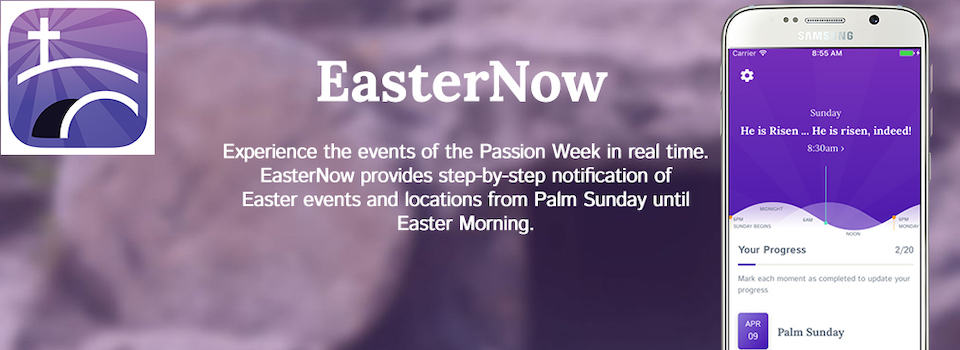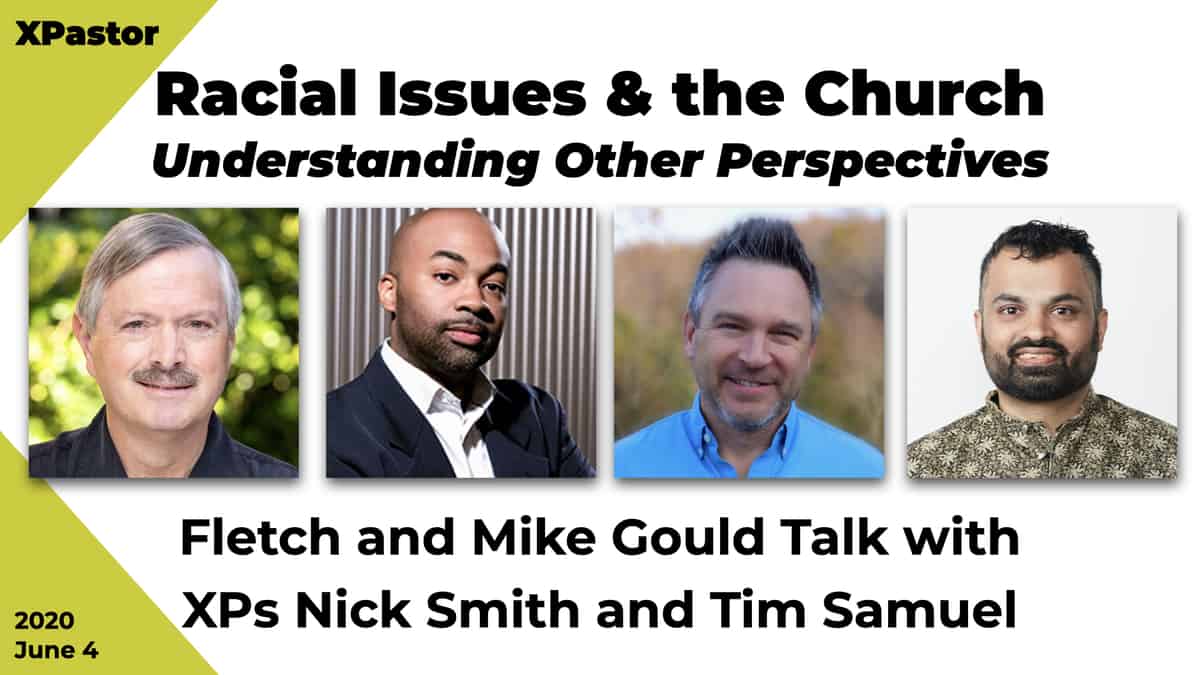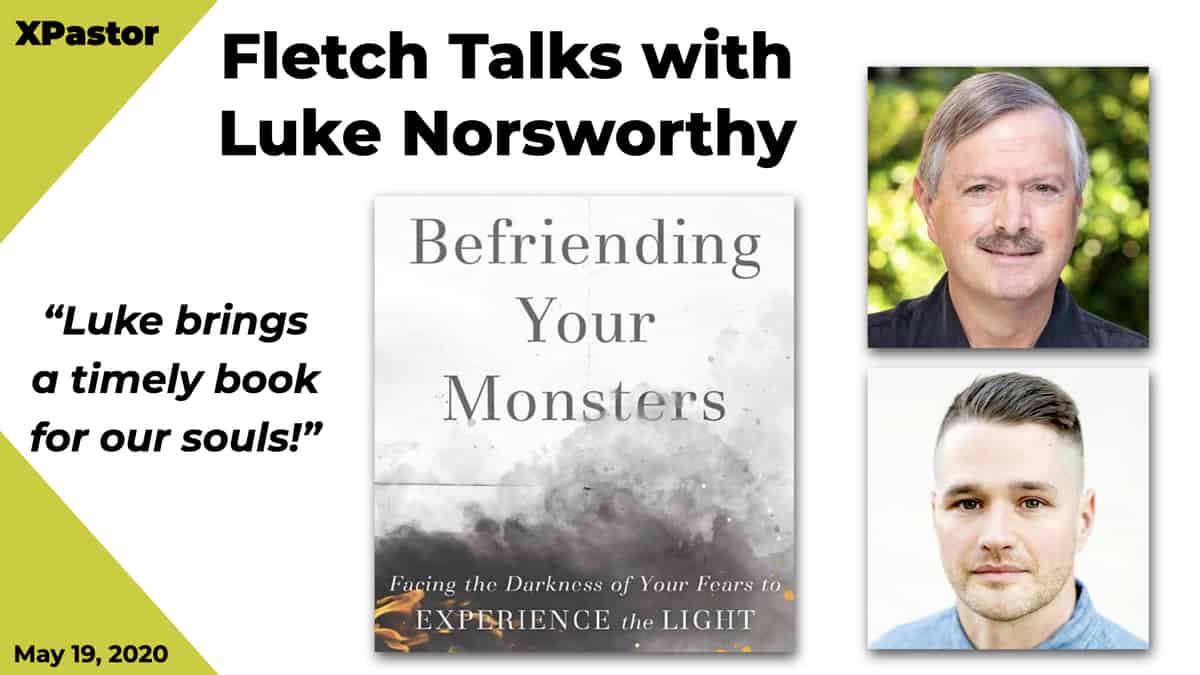Ministry is about people. Loving them. Equipping and encouraging them. Getting close to them. Not an easy job with 75 people, let alone 175 or 500 or 1,000. In watching pastors who want to touch people personally, I’ve seen a tried and proven method that works wonders. It takes as little as thirty minutes a week. It’s the simple joy of standing at your church door after service times, greeting the people. I see a lot of pastors no longer do this. They allow themselves to be cornered up front or in some hallway with some persistent saint, or someone they like spending time with. They miss a great weekly opportunity to touch most people in their congregation and a lot of guests. In some ways it’s like being a host. A.W. Tozer never did it. Lloyd Ogilvie always did. One was a prophet. The other was a pastor.
I understand that some pastors of mega churches may not be that accessible. I understand that emotionally some may not feel they fit this kind of situation. But for most of us every day kind of guys, it’s an opportunity to maximize our interaction time with people. I learn that some people tend to remember what I say at the door more than they remember my sermon. Oh sure, you get the usual cliches, “Nice sermon.” “Great message.” And some like dumping on you a little bit. Of course we get weary, especially after multiple services. But I’ve always done it. Nobody told me to. It just seemed right. And I still do it. I’ve watched pastors of great churches do it, one with a congregation of 3,000. It’s a weekly opportunity we ought not miss. Here are my reasons:
1. The need for a personal touch.
In our high-tech society of email, voice-mail, and computerized letters, people need to feel like they’ve interacted with someone who might be important in their lives; someone who looks at them, smiles at them, hears their voice, touches them.
2. They listen more to my sermon.
They relate better to what I am trying to say in my sermon if they sense I know them even a little bit. Seeing me as a person, whether it’s in a robe, a dark suit, or my dockers and a sweater, they then can relate to me better when I’m “on the platform.”
3. It disciplines me to know all the people.
Children aren’t sure what to say, but when you know their name it means a lot to them and their parents. We have a friend who is a beautiful lady in her forties. She still talks about how she liked to come by the door and talk to me when she was a preschooler.
My mind is working really hard recalling names and memorizing new ones. Standing by the door is work, but it’s worth it.
4. I pray more for the people when I know them by name.
They are not just a picture in the church directory or a name I should know. They are real persons, and I care. It’s a joy to put my head on my pillow at night and prayerfully “count the sheep.”
5. I learn something about their needs.
I ask: How is your family? How’s it really going in business? Do you find it a stretch having teens in your home? How is your mother who visited here last summer? These short questions can produce helpful information.
6. It’s a way to affirm their ministry.
“I hear good things about your Sunday School class.” “Tell me about your growth group.” “This is such a vital ministry in our church.” “I loved the choir anthem.” “Thanks for caring for our precious little ones in the nursery.” Some folks don’t get very much encouragement. None of us get too much.
7. It’s a discipleship minute.
I can connect with scores of people thirty minutes after the service. I can make it an important discipling moment to some. I frequently ask, “How are you doing with your commitment with …?” “Have you thought any more about …?” Can I pray for you on your journey?” I may then ask them to step aside for a moment and wait until others pass by them or join hands and pray.
8. I network new people.
“Aren’t you new among us? I want to introduce you to some people who would enjoy knowing you. Can you wait just a moment?” What a great way to get them into a group or a class.
9. It’s a good way to meet people that I haven’t met face-to-face.
Dr. Lee, who for many years pastored First Nazarene Church in Pasadena, California, used this opportunity so skillfully though his church congregation numbered several thousand. He was no longer able to visit new people as he once did, but he would spend an hour or so every week phoning the visitors. He chatted about the service they attended, then asked them to come by his door on the next Sunday so he could meet them face-to-face.
10. A wonderful opportunity to extend a personal blessing.
People today feel lonely. Half of the population neither wants to be seen nor heard. What an opportunity to reach out and give a personal blessing beyond the benediction you may have offered only a few minutes earlier! This has a wonderful Biblical precedent. I love to take people by the hand, look them in the eyes and say, “May the peace of God go with you and yours this week” or “May God’s grace fill your life this week” or “May your life reflect the grace of God to others this new week.”
When the church became larger, the people would use the “door time” for unloading. I found having someone stand near me to help me make notes of the cries for help was important. Sometimes I quickly unload my mind by immediately recording crucial contacts on a handy Dictaphone. Some of these are delegated. While I could not personally attend to every need or desire, others could and did.
When the church became very large, I changed doors. I would switch around with other staff members and elders who also teamed with their wives.
Standing by the door may not be everybody’s cup of tea. My wife and I always find it a stretch. But we find great joy in significantly, though only momentarily, touching the lives of people we love and serve. More come through the door than I’ll see in all my counseling, calling, discipling and committee meetings all week.
The people stimulate me. I stand by the door to give, not to get. But in the process, I do receive. Their smiles and words let me know they are making it. Their affirmation of God at work in their lives gives me positive vibes. I am healed and helped by their words of love. Any shepherd who is not a hireling loves and cares for the sheep under his charge.











